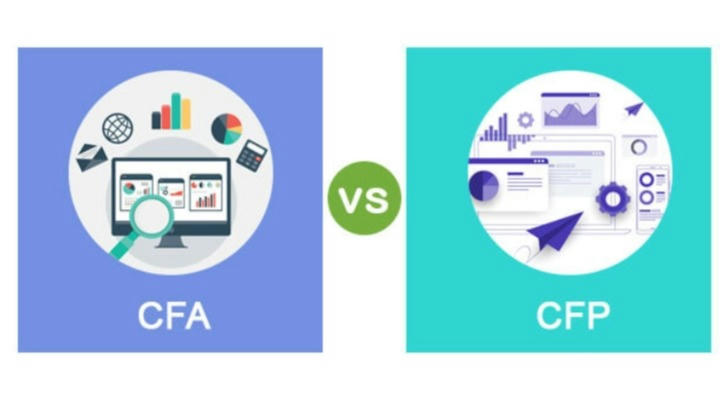Certified to Succeed: How CFP, CFA, and Other Certifications Impact Career Growth
The financial services industry is packed with opportunity, but it’s also fiercely competitive. To stand out, many professionals turn to certifications like the CFP (Certified Financial Planner) or CFA (Chartered Financial Analyst). These aren’t just fancy acronyms for business cards—they can be game-changers for career development. But how exactly do they make a difference, and which one should be the next goal?
1. Why Certifications Matter More Than Ever
In today’s financial landscape, trust is everything. Clients expect more than just a friendly face; they want evidence of deep knowledge and professional credibility. According to a 2023 survey by the Financial Planning Standards Board, nearly 70% of clients say they would prefer to work with a certified professional over one without credentials.
Certifications signal commitment, competence, and specialization. For financial professionals looking to boost their career, a credential like CFP or CFA acts like a stamp of approval that speaks volumes in a crowded job market.
More employers are also using certifications as a way to ensure consistency in hiring. A certified professional has already met a defined standard, making it easier for firms to assess qualifications and minimize onboarding risks.
2. CFP vs. CFA: What’s the Difference?

While both titles carry weight, they serve different purposes and career paths.
CFP (Certified Financial Planner)
● Focus: Personal financial planning
● Key topics: Retirement, estate planning, tax strategies, insurance
● Time to earn: Typically 12–18 months
● Pass rate: Around 65%
● Best for: Professionals advising individuals or families on comprehensive financial plans
CFA (Chartered Financial Analyst)
● Focus: Investment analysis and portfolio management
● Key topics: Financial reporting, economics, quantitative methods, ethics
● Time to earn: 3–4 years (includes three levels of exams)
● Pass rate: Level I pass rates hover around 40%
● Best for: Those aiming for careers in asset management, hedge funds, or investment research
Each certification brings a unique set of tools and opens different doors. Choosing the right one depends on long-term career goals.
3. Real Career Impact
Holding one of these certifications can significantly increase earning potential. A 2022 study from Payscale shows that:
● CFP professionals earn about 17% more on average than their uncertified peers.
● CFA charterholders report salary boosts of up to 30%, especially after completing all three levels.

Beyond salaries, credentials often lead to faster promotions, leadership roles, and job mobility. Recruiters and employers tend to prioritize resumes that include well-recognized certifications, especially in competitive roles.
What’s more, these certifications can open global opportunities. The CFA charter, in particular, is internationally recognized, giving professionals the flexibility to work across different markets and financial systems.
4. More Than Just Letters: Skills and Credibility
Getting certified isn’t just about passing exams. The process requires rigorous training, hands-on experience, and a commitment to ethical standards. For instance:
● CFP candidates must meet education and experience requirements and uphold a strict code of ethics.
● CFA candidates go through years of financial theory, investment practice, and ethical case studies.
These aren’t one-and-done deals either. Ongoing education is required to maintain certification, ensuring that professionals stay current with changes in regulation, technology, and markets.
Additionally, certified professionals often gain access to exclusive networks, continuing education events, and professional development resources, all of which can support long-term career growth.

5. The Pain Points: Time, Cost, and Pressure
Of course, the road to certification isn’t easy. That’s part of what makes it valuable.
● CFP program costs range from $2,000 to $7,000, depending on the provider and study resources.
● CFA exams and materials can total over $4,000, not including time off work or study hours.
Preparation can feel like having a second job. Balancing full-time work with nightly study sessions and weekend practice tests takes serious discipline. But for those who make it through, the benefits often outweigh the effort.
According to the CFA Institute, candidates typically spend over 300 hours preparing for each level of the exam. This intense commitment helps build a foundation of discipline and expertise that serves professionals throughout their careers.
6. Future-Proofing a Career in Finance
As automation and AI transform finance, certifications help professionals stay ahead. While machines may crunch numbers, clients still want personalized advice and human insight—areas where certified experts shine.
According to the CFA Institute, 75% of investment professionals believe that having a designation will help protect their job against disruption. In other words, certification isn’t just about advancement; it’s about survival in a changing industry.
CFP and CFA holders also gain credibility in areas that increasingly demand high ethical standards and compliance knowledge—fields where algorithm-driven systems may fall short.
Final Takeaway
CFP and CFA certifications aren’t shortcuts to success, but they are powerful accelerators. They show a clear commitment to the craft, offer credibility with clients and employers, and open doors that may otherwise stay shut. For anyone serious about a long-term career in finance, getting certified could be one of the smartest investments yet.
In a world where job titles can be vague and resumes filled with buzzwords, a certification is a clear, recognized signal of expertise. As the financial world evolves, those equipped with the right credentials will not only adapt—but lead the way.
